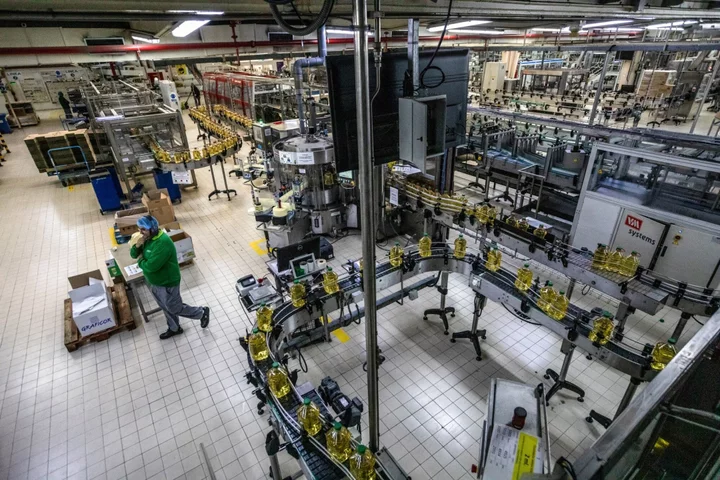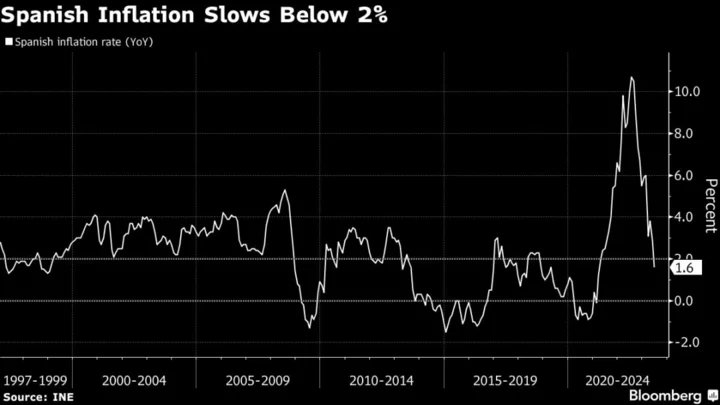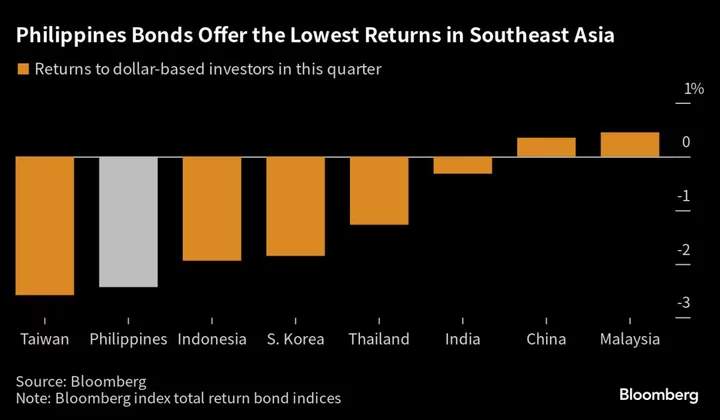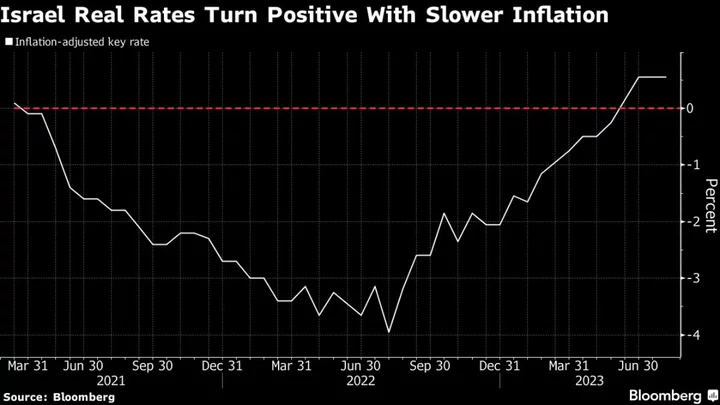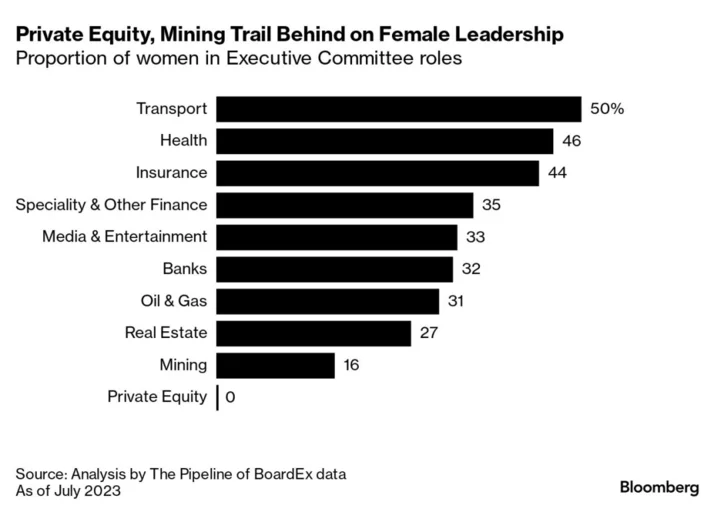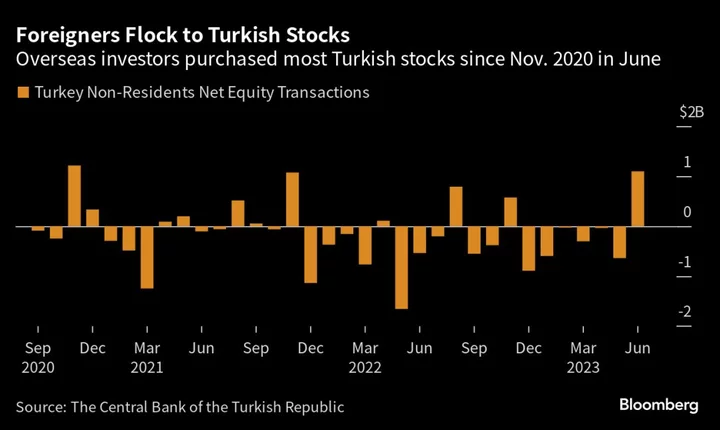Economic momentum in the euro area almost came to a halt in June, signaling an end to the revival the bloc demonstrated since its winter downturn.
A purchasing managers index compiled by S&P Global and published Friday fell to a five-month low of 50.3, missing analyst estimates for a slight decline from May to 52.5. The slump was led by France, which has been battered by strikes, though Germany’s struggling factories also played a role.
The euro held declines, having fallen 0.8% to $1.0874, while German two-year yields — among the most sensitive to changes in monetary policy — extended their slide, dropping 13 basis points to 3.10%. Money markets eased interest-rate hike wagers, pricing the deposit rate to peak at just below 4% by the end of the year.
While the 20-nation euro region may have done just enough to exit the mild recession it suffered between October and March, S&P warned that the chances had risen of that malaise stretching into the coming quarter — particularly as the European Central Bank continues to lift interest rates.
“Even if our baseline scenario of slightly positive euro-zone growth in the second quarter still becomes reality, the downward trend in the Composite PMI points to a difficult second half of the year as companies across all sectors face deteriorating order books,” Cyrus de la Rubia, chief economist at Hamburg Commercial Bank, said in a statement.
Manufacturing remained the “principal area of weakness” in June, though service-sector expansion “slowed sharply” as the recent bounce-back in spending lost momentum.
The disappointing data on the activity front were, however, accompanied by a “marked cooling of inflationary pressures,” according to S&P. It said input costs grew at the slowest pace since December 2020 and selling prices for goods and services rose at the weakest rate since March 2021.
That will offer some hope to the ECB, which is nearing the end of its historic campaign of interest-rate increases but has recently hinted that hikes may need to persist beyond the July end-date most economists have been penciling in.
“If the ECB only had to control goods prices, then Frankfurt would toast the end of inflation,” de la Rubia said. But “in the more important part of the economy, the private services sector, prices continue to rise, and that’s why the core rate of inflation has been so slow to decline.”
S&P Global said its monthly surveys were conducted in June with 85% of the usual level of responses.
PMI readings earlier showed a contraction for France and a loss of momentum for Germany.
The UK and the US later on Friday are predicted to show a slowdown. Data earlier revealed similar trends in Japan and Australia
--With assistance from Mark Evans, Joel Rinneby and James Hirai.
(Updates with euro and German two-year yield reaction in third paragraph.)

